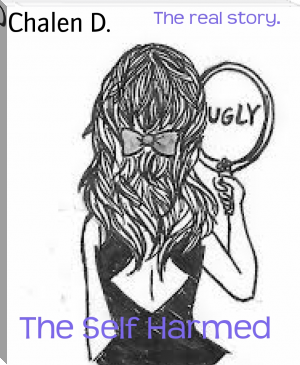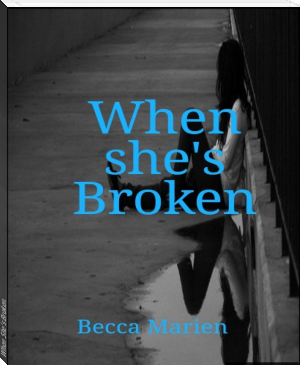Seen the Lights Go Out on Broadway by Kevin Noa (world of reading txt) 📖

- Author: Kevin Noa
Book online «Seen the Lights Go Out on Broadway by Kevin Noa (world of reading txt) 📖». Author Kevin Noa
Seen the Lights Go Out on Broadway: by Kevin Noa
It was always dad's dream to live in Manhattan. Riding his bike along the path in Brooklyn that bordered the East River between the Brooklyn and Manhattan bridges, he would gaze across to the Big Apple's majestic buildings. On a clear day the skyline gleamed more than the horizon of the Emerald City in the Wizard of Oz. At night the lights gave off an energy that said, "Take that Paris!" For to him, this was the real city of lights. Not that he'd hadn't walked the streets and meandered his way through the neighborhoods of the Big Apple. His mother would take him into the city on her days off.
Mom did not have the instant attraction to Manhattan until later. Mom grew up in a solid middle class family on the other side of the Bear Mountain Bridge. Nyack, which is twenty miles up the North River, where the granite foothills of the Catskills carved out a town banking a main street that showed both good and bad times. When one looked across to the Palisades, it was hard to imagine that arguably one of the centers of the Universe was so close.
My parents met in 1978. They were both students at SUNY Albany. There, the concrete campus of buildings educated some of the finest minds in the Empire State. My mother was in her second year of law school and my father was a history major. They fell in love and made their way back down the thruway towards the big city. They were married three years later and settled in a small apartment in Bay Ridge, Brooklyn. Here, where John Travolta had become a superstar a couple of years back in Saturday Night Fever. I came along just after my parents celebrated their fourth anniversary.
Michael and Emily Burbank worked hard, especially during the first decade of their
1
marriage. My father worked some low level sales jobs for a couple of years until he decided to get certified to teach history. He went back to Brooklyn College to finish the course work necessary. He began teaching at Abraham Lincoln High School in Flatbush. Mom's big break came when Rudy Giuliani became Mayor of New York. His honor walked into the law firm where my mother was clerking. After asking for some briefs on crime activity, which my mother obtained for him, he asked her if she'd like to be a public defender in one of the circuit courts in Manhattan. Five years later Mayor Giuliani would make her Judge Burbank for the circuit family court in Manhattan. Dad meanwhile kept going to grad school and taught part time at NYU. He earned his PHD and became Professor Burbank.
In 1989 my father's lifelong dream came true. Our family bought a brownstone in Greenwich Village. My father was in heaven. Not only were we in one of the most unique and quaint neighborhoods in New York, but our home was only one block from 29 Washington Square Park West, where Eleanor Roosevelt had made one of her Oasis's for herself. Here, and her beloved Val Kill on the Hyde Park Estate just upriver from Nyack, is where she had spent the remainder of her life after FDR's death.
My family delighted in Manhattan. We thrived with an exuberance of tell-tale majesty from the close knit neighborhood. Our busy lives revolved around a quintessential medium of school, work, social and civic activities. The sounds of my mother's stilettos resonating her rhythmic gait down our hardwood floors towards her bedroom after work. Putting her briefcase next to her desk and dropping her coat on her bed, she would head to the kitchen to start dinner as I was doing my homework. I entered High School for the
Humanities in the fall of 1999. After a show of affection towards me, our conversation
2
would banter back and forth. "How was your day? Is your report coming along alright? Is that cute boy in the play still making eyes at you?" "Mom," I would retort as I buried my head between my keyboard and notebook. She would give a hardy laugh that echoed throughout the house.
Dad's afternoons were sporadic. Their go betweens ranged from department meetings, student advising and research. Precious hours after classes were spent either on his long walks throughout lower Manhattan or up towards mid-town. These walks were his therapy. He'd likened himself to Charles Dickens taking his afternoon walk through London after he had spent the day writing. My father's walks were both a combined adventure and smorgasbord in the various Manhattan neighborhoods.
There were two vital pieces of equipment on my dad's walks. The first of course were his footwear. Having good feet with a deep arch, a good pair of mid-cut cross trainers carried him from May to October. Once the chill of November came, however, sneakers were replaced by a pair of hiking boots. These kept his feet dry through the nasty days when he still wanted to walk. The other essential was his walkman. Those yellow archaic cassette players with radio that strapped onto ones belt. Looking at all the modern I-Pods we now have in the age of technology, those relics were so dated. Still to this day I kid him and say, "You should have kept that walkman dad, it could have qualified for the Smithsonian by now." "Very funny Erin," was his standard reply.
It was all about the tunes though. Being right in the city, he could get CBS FM 101 clear as a bell. Growing up with the oldies and classic rock, DJ's from his boyhood like Dan Ingram, Harry Harrison and Cousin Brucie (Bruce Morrow) were still playing the hits.
3
Mom had grown up with these AM legends too. But when it came to cassettes, one artist eclipsed all others in my father's eyes, and that was Billy Joel. While others from my parents' generation might genuflect to their posters of Bruce Springsteen each morning, my father was all for Billy.
There was an ongoing love-enough already between my parents and Billy Joel. Some of his favorites were New York State of Mind, of course, Allentown and Say Good-bye to Hollywood. Usually one of these mostly on-key renditions would be performed for us after his walks when his endorphins had him on auto-pilot. But his favorite Billy Joel tune was Miami 2017, better known as ( Seen The Lights Go Out On Broadway). Since he first heard the Turnstile Album in 1976, it became his favorite Billy Joel album. When mom and he would go to a show, in his lighthearted way he'd always ask, "How could the lights ever go out on Broadway?" Arm in arm my mother would add, "Never." Until!
It was one of those perfect late summer days in September when the sparkle of the robin egg blue sky wouldn't be invaded from so much as a cirrus cloud. The high pressure system over the entire mid-Atlantic and New England would keep the humidity low and welcome a day that tempted the entire megalopolis from Washington to Boston to play hooky; if only that were true.
Still to this day it is surreal to me that I witnessed and was a part of 9/11. As we all left home that morning, the three of us kissed each other good-bye. Everyone had an extra bounce in their step from the freshness in the air that enveloped everyone heading to their destinations. On a day so beautiful we were all walking. Dad, just a few blocks to campus, mom, to the courthouse and me to school in Chelsea.
4
I was in biology lab when the first plane hit the North Tower at 8:46. Mrs.
Casey, the science department chairwoman came in and told our teacher. We knew it was something serious by the looks on their faces. When the bell rang to change class at the end of first period the halls were a buzz of rumors and concern. Windows that could see the towers were flooded with students and teachers. When the second plane hit the South Tower at 9:03, almost a complete panic set in. Within seconds announcement came over the loud speakers to remain in our classrooms until further instructions. Everyone was now transfixed on each television in the school. We were in lockdown.
Fire whistles and sirens from every direction broke the silence. Some students whose parents worked in the towers became hysterical. They were quickly comforted by others as their sobs turned to frightened whimpers.
Court was canceled immediately. My mother called my father first and then my school. After being given permission by the University President to let their classes go, my parents decided to go home and change into clothes that were easier to move around in. They both reached our steps about the same time, hugged, and went inside; it was 9:50. Immediately they turned on the television. Changing quickly, they watched the horror unfold. You could see the towers from our loft. As they reached the top step, the south tower began to crumble. They both stared in disbelief, holding on to each other. Suddenly, dad thought, "Dennis!"
Dennis Williams and dad had been friends since kindergarten. You guessed it; he played fireman and kept that focus right up until he became a member of ladder company
5
fifteen. As soon as the north tower followed the south at 10:28, my dad knew immediately
that Dennis was gone.
Going outside, they headed for my school. Police had already set up barricades all over Lower Manhattan. However, my parents brought plenty of identification, and were able to get within a block of my school. Police explained we were in lockdown. By now fighter jets and helicopters covered the sky. After waiting with other parents for what seemed like eternity, we were allowed to leave school with our parents.
The return to our house was bedlam. People were running everywhere. The dust from ground zero began to reach our neighborhood. Some people were literally ashen as they made their way uptown.
Once home, we shut our home up as tight as we could. The remainder of the day was spent in front of the television and letting people use our telephone, which still worked thank God, to call family and let them know they were OK. So many people on the other end of the phone insisted to their loved ones to thank us for giving them such relief.
The news bounced up and down like a rubber ball. We were all safe as we knelt before the crucifix in our foyer and prayed for all those who were suffering. Dad now had time for his first of many cries for Dennis.
By late afternoon the city was still mass hysteria. An umbrella of death now hovered over Lower Manhattan. By now the crisp morning air was rancid with a mixture of toppled concrete, melted steel, incinerated furniture, office equipment and death. The sirens continued to wale from St. Vincent's Hospital as night fell.
We awoke to what we hoped was just a bad dream, but the nightmare was real. In
6
all the madness the resilience of the city chose Union Square as a sanctuary for grief,
mourning and hope. As dark descended September 12th, shrines of candles illuminated
American Flags and flowers of grief. Tears rolled down cheeks, consecrating the broken hearts of those who knew the inevitable. In amongst the sea of humanity a lone saxophone cried the blues.





Comments (0)